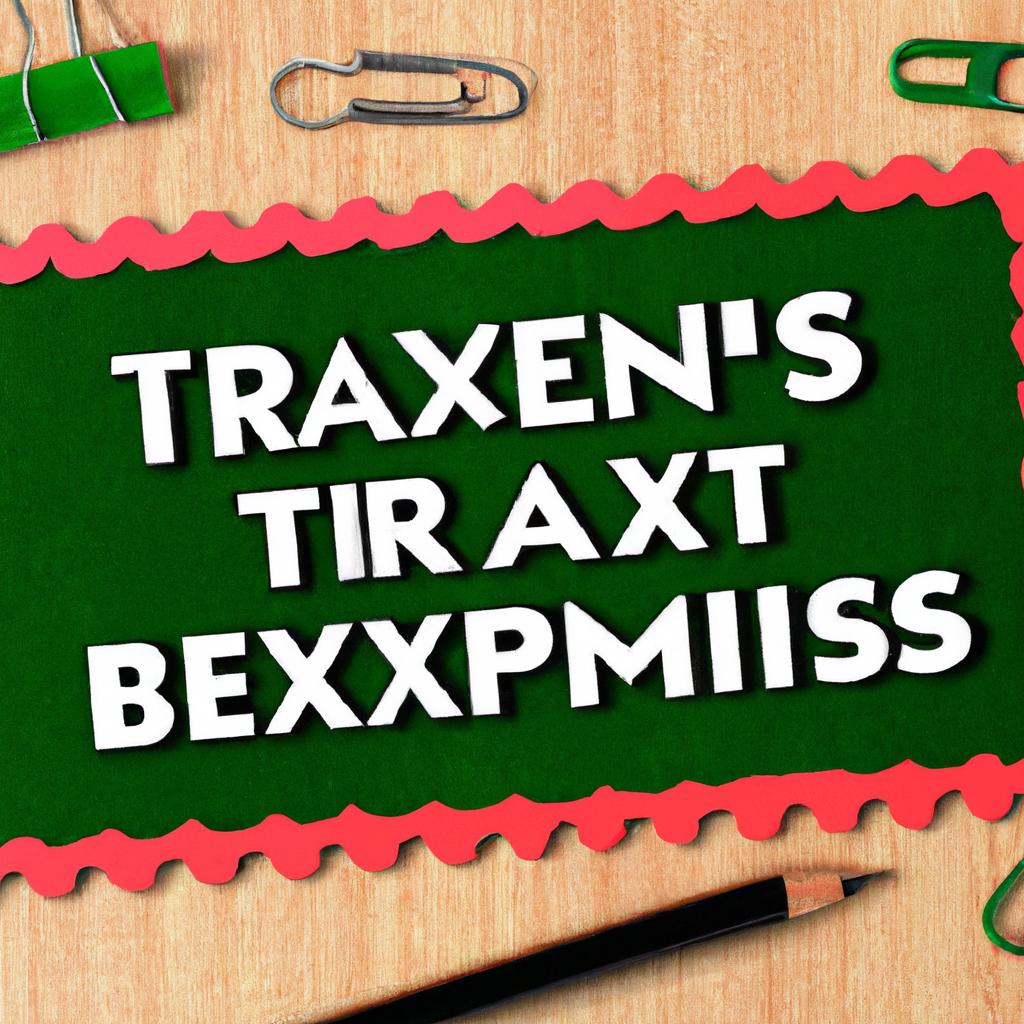As a trustee, the responsibilities and powers that come with managing a trust can be both complex and rewarding. Understanding what a trustee can do with a trust is essential to effectively carry out their duties and uphold the intentions of the trust creator. In this article, we will explore the various actions and decisions that a trustee can make within the parameters of a trust, offering insights and guidance on navigating the intricate world of trust administration. From investments and distributions to record-keeping and communication with beneficiaries, trustees play a crucial role in ensuring the proper management and distribution of trust assets. Join us as we delve into the intricacies of trust administration, shedding light on the capabilities and limitations of trustees in fulfilling their fiduciary duties.
Understanding the Role of a Trustee in Managing Trust Assets
As a trustee, you bear a great responsibility in managing trust assets for the benefit of the beneficiaries. It is important to understand the extent of your powers and duties in order to effectively fulfill your role. Here are some key things a trustee can do with a trust:
- Investment Management: Trustees have the authority to manage and invest trust assets, with a duty to do so prudently and in the best interests of the beneficiaries.
- Distribution of Assets: Trustees can distribute income and principal from the trust to the beneficiaries according to the terms of the trust document.
- Record Keeping: Trustees are responsible for keeping accurate records of all trust transactions and reporting to the beneficiaries on a regular basis.
It is crucial for trustees to act in good faith, with loyalty to the beneficiaries, and to avoid any conflicts of interest. Consulting with legal and financial professionals can help trustees navigate the complexities of trust management and ensure that the trust assets are properly preserved and distributed according to the trust terms.

Exploring the Discretionary Powers of a Trustee in Making Distributions
When it comes to managing a trust, trustees hold a significant amount of power in making distributions to beneficiaries. This discretionary power allows trustees to make decisions on how and when to distribute trust assets, providing flexibility and control over the trust’s administration. Trustees must exercise this power carefully and ethically, considering the needs and circumstances of the beneficiaries.
Trustees can use their discretionary powers in various ways, such as:
- Providing for beneficiaries’ basic needs: Trustees can use trust assets to cover beneficiaries’ essential expenses, such as housing, education, and healthcare.
- Investing trust funds: Trustees can make investment decisions to grow the trust assets over time, maximizing the benefit for beneficiaries.
- Making special distributions: Trustees can distribute assets for special occasions or circumstances, such as emergencies or educational opportunities.

Maximizing Tax Benefits Through Prudent Investment Strategies
A trustee plays a crucial role in managing a trust and ensuring that the trust assets are distributed according to the wishes of the grantor. There are several key responsibilities that a trustee must fulfill in order to effectively administer a trust. These include managing investments, handling distributions to beneficiaries, keeping accurate records, and filing tax returns. By carrying out these duties diligently, a trustee can maximize tax benefits for the trust and its beneficiaries.
When it comes to investment strategies, a trustee must act prudently and in the best interests of the trust beneficiaries. This means carefully selecting investments that align with the goals and risk tolerance of the trust, diversifying the portfolio to mitigate risk, and regularly reviewing and updating investment decisions. By taking a thoughtful and strategic approach to investment management, a trustee can help the trust assets grow over time while also minimizing tax liabilities. By working with a knowledgeable estate planning attorney, trustees can develop a comprehensive investment plan that maximizes tax benefits and ensures the long-term financial security of the trust.
Ensuring Compliance with Fiduciary Duties in Trust Administration
When it comes to trust administration, trustees play a crucial role in ensuring compliance with fiduciary duties. A trustee is responsible for managing the assets held in a trust for the benefit of the trust beneficiaries. It is important for trustees to understand the limitations of their powers and to act in the best interests of the beneficiaries.
As a trustee, there are several key things you can do with a trust to fulfill your fiduciary duties:
- Investment: Prudently invest trust assets to generate income for the beneficiaries.
- Record keeping: Maintain accurate records of all trust transactions and communicate with beneficiaries regarding the trust administration.
- Distribution: Make distributions to beneficiaries according to the terms of the trust document.
Q&A
Q: What exactly can a trustee do with a trust?
A: A trustee is responsible for managing a trust on behalf of the beneficiaries. This can include managing assets, making investment decisions, and distributing funds according to the terms of the trust.
Q: Can a trustee use trust funds for personal gain?
A: No, a trustee has a fiduciary duty to act in the best interests of the beneficiaries and must not use trust funds for personal gain.
Q: What are some typical responsibilities of a trustee?
A: Some typical responsibilities of a trustee include: managing trust assets, keeping accurate records, communicating with beneficiaries, filing taxes, and following the terms of the trust.
Q: How does a trustee make decisions about investing trust assets?
A: A trustee typically follows the investment strategy outlined in the trust document and must make decisions that are in the best interests of the beneficiaries.
Q: Can a trustee distribute trust funds whenever they want?
A: A trustee must follow the guidelines outlined in the trust document and only distribute funds according to the terms of the trust and for the benefit of the beneficiaries.
Q: What happens if a trustee breaches their fiduciary duty?
A: If a trustee breaches their fiduciary duty, they can be held liable for any losses incurred by the trust and may face legal consequences. It is important for trustees to act responsibly and ethically at all times.
In Summary
In conclusion, the role of a trustee is a complex and multifaceted one, with a wide range of responsibilities and powers. From managing assets and making investment decisions to distributing funds to beneficiaries and ensuring the trust’s objectives are met, a trustee plays a crucial role in overseeing the affairs of a trust. By understanding the duties and powers bestowed upon them, trustees can effectively carry out their responsibilities and help ensure the success and longevity of the trust. Ultimately, the trust exists to benefit the beneficiaries, and it is the trustee’s responsibility to act in their best interests at all times. Trustee is indeed a position of trust, requiring diligence, integrity, and a commitment to upholding the values and intentions of the trust’s creator.
 Understanding trusts and the role of a trustee can be quite confusing and overwhelming. However, trusts can be a powerful tool in estate planning and asset protection. In simple terms, a trust is a legal arrangement where the settlor (person creating the trust) transfers their assets to a trustee for the benefit of the beneficiaries. The trustee then manages the assets according to the terms of the trust. So, what can a trustee do with a trust? In this article, we dive into the various responsibilities and powers of a trustee and how they can use the trust for the benefit of the beneficiaries.
Understanding trusts and the role of a trustee can be quite confusing and overwhelming. However, trusts can be a powerful tool in estate planning and asset protection. In simple terms, a trust is a legal arrangement where the settlor (person creating the trust) transfers their assets to a trustee for the benefit of the beneficiaries. The trustee then manages the assets according to the terms of the trust. So, what can a trustee do with a trust? In this article, we dive into the various responsibilities and powers of a trustee and how they can use the trust for the benefit of the beneficiaries.
Responsibilities of a Trustee
As the legal owner of the trust assets, the trustee has a fiduciary duty to act in the best interests of the beneficiaries. This means they must always act with honesty, care, and diligence while also avoiding conflicts of interest. Some specific responsibilities of a trustee include:
1. Managing Trust Assets
The most important responsibility of a trustee is to manage and protect the trust assets. This may involve investing the assets, maintaining financial records, and making distributions according to the terms of the trust. The trustee must also keep the beneficiaries informed about the trust and its assets.
2. Following the Terms of the Trust
A trustee must adhere to the terms and conditions outlined in the trust deed. The trust deed is a legal document that specifies how the trustee should manage the trust assets and make distributions to the beneficiaries. The trustee must also ensure that all decisions and actions are in line with the settlor’s intentions as stated in the trust deed.
3. Acting Impartially
A trustee has a duty to treat all beneficiaries equally and impartially. This means they must not favor one beneficiary over the others unless it’s specified in the trust deed. The trustee must also avoid any conflicts of interest that may arise between the beneficiaries and the trust assets.
4. Keeping Accurate Records
A trustee is required to keep accurate and up-to-date records of all transactions involving the trust assets. This includes any investments made, distributions to beneficiaries, and any other relevant information regarding the trust. These records must be kept in a safe and secure place and made available to beneficiaries upon request.
Powers of a Trustee
In addition to their responsibilities, a trustee also has certain powers that allow them to effectively manage the trust assets. These powers may vary depending on the terms of the trust deed, but some common powers include:
1. Buying and Selling Assets
A trustee has the power to buy, sell, and exchange trust assets as they see fit. This allows them to make investments and manage the assets in a way that maximizes their growth and benefits the beneficiaries.
2. Reinvesting Trust Income
Trustees can choose to reinvest trust income instead of distributing it to the beneficiaries. This means that the assets can continue to grow and generate more income for the beneficiaries in the long run.
3. Making Distributions
One of the main powers of a trustee is the ability to make distributions to the beneficiaries. This can include regular payments, lump-sum distributions, or specific gifts as outlined in the trust deed.
4. Appointing Professionals
A trustee can also appoint professionals, such as lawyers, accountants, and financial advisors, to help manage the trust assets. These professionals can provide valuable expertise and ensure that the trust is being managed effectively.
Benefits of Using a Trust
Now that we’ve covered the responsibilities and powers of a trustee, let’s discuss some of the benefits of using a trust in estate planning and asset protection.
1. Asset Protection
One of the main reasons people create trusts is to protect their assets from creditors and lawsuits. Since the assets are owned by the trust, they are not considered to be the property of the beneficiaries, making them less vulnerable to legal claims.
2. Tax Planning
Trusts can also offer tax benefits, depending on the type of trust and the location where it is set up. For example, a revocable living trust can help reduce or eliminate estate taxes, while a charitable trust can provide tax breaks for charitable donations.
3. Avoiding Probate
Assets held in a trust do not go through the probate process, which can be lengthy, costly, and public. This means that the beneficiaries can receive their inheritance faster and with less hassle.
Tips for Choosing a Trustee
Choosing the right trustee is crucial for the success of a trust. Here are a few tips to keep in mind when selecting a trustee:
1. Consider their Qualifications
The trustee should have the necessary skills and knowledge to manage the trust assets effectively. This could include financial expertise, legal knowledge, or experience in managing trusts.
2. Trustworthiness
It’s essential to choose someone who is trustworthy and has the best interests of the beneficiaries at heart. This person should be able to handle the responsibility of managing assets and be free from any potential conflicts of interest.
3. Willingness to Serve
Make sure the potential trustee is willing to take on the role and has the time and energy to dedicate to managing the trust assets properly.
Real-Life Example
To further illustrate the role of a trustee, let’s look at a real-life example. John creates a trust and appoints his brother Mark as the trustee. John’s wife and two children are the beneficiaries of the trust.
Mark’s responsibilities as a trustee include managing the trust assets, keeping accurate records, and making distributions to John’s wife and children according to the terms of the trust. He must act impartially and avoid any conflicts of interest, always keeping the best interests of the beneficiaries in mind.
In this example, a trust not only provides asset protection for John’s family but also ensures that the assets are managed and distributed according to his wishes.
In conclusion, a trustee plays a vital role in managing and protecting trust assets for the benefit of the beneficiaries. They have specific responsibilities and powers that enable them to effectively manage the trust and make distributions. Understanding the role of a trustee and the benefits of trusts can help you make informed decisions when it comes to estate planning and asset protection. Remember to choose a trustworthy and qualified trustee to ensure the success of your trust.

